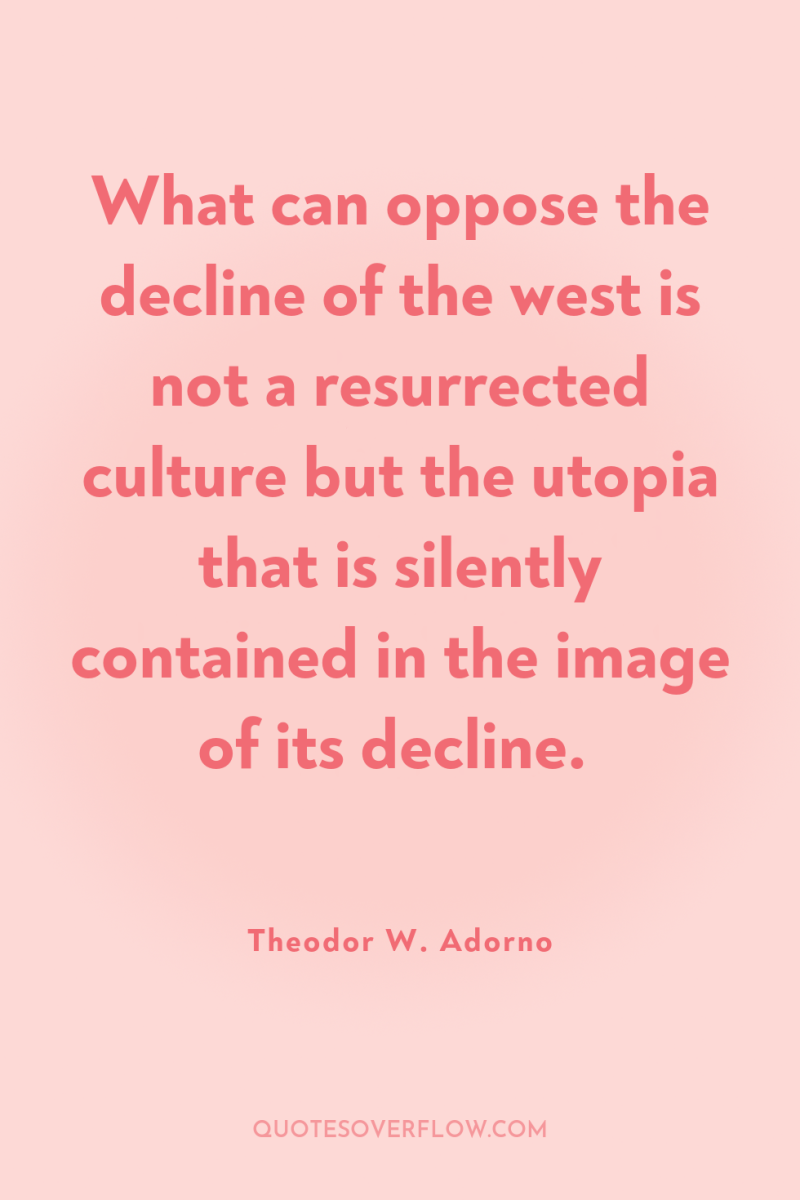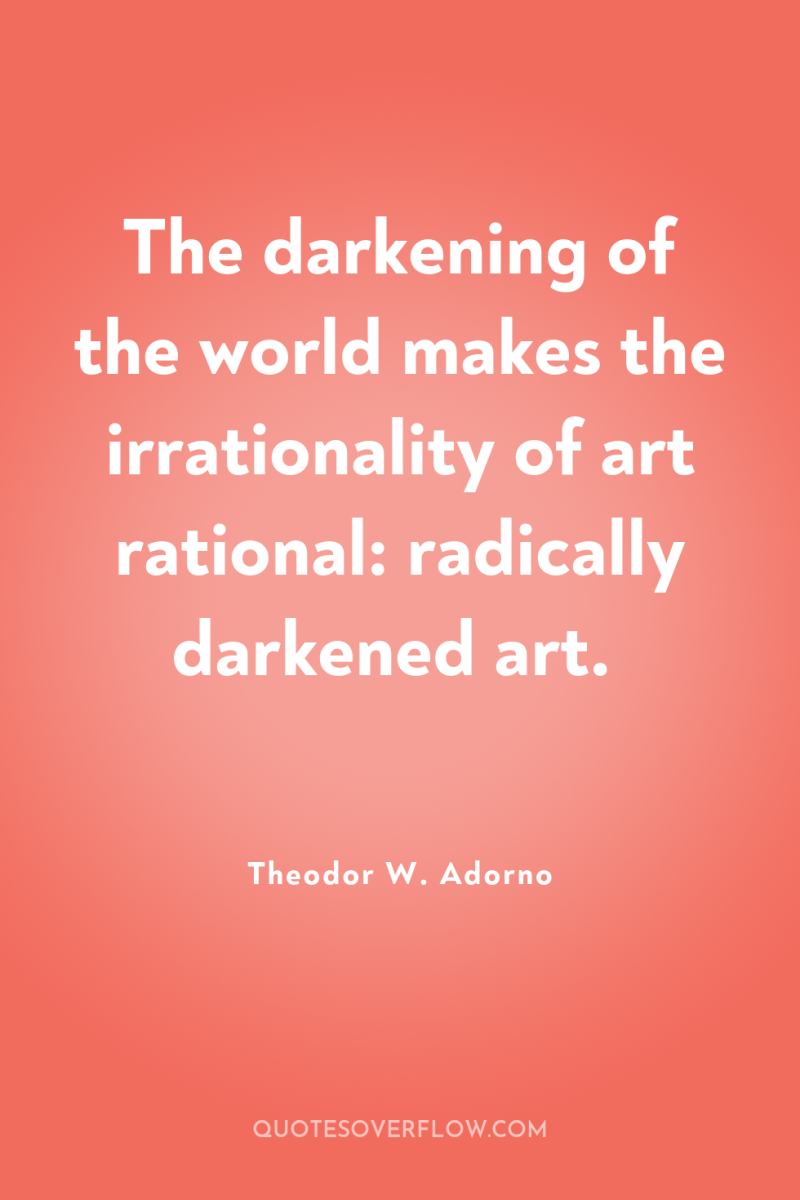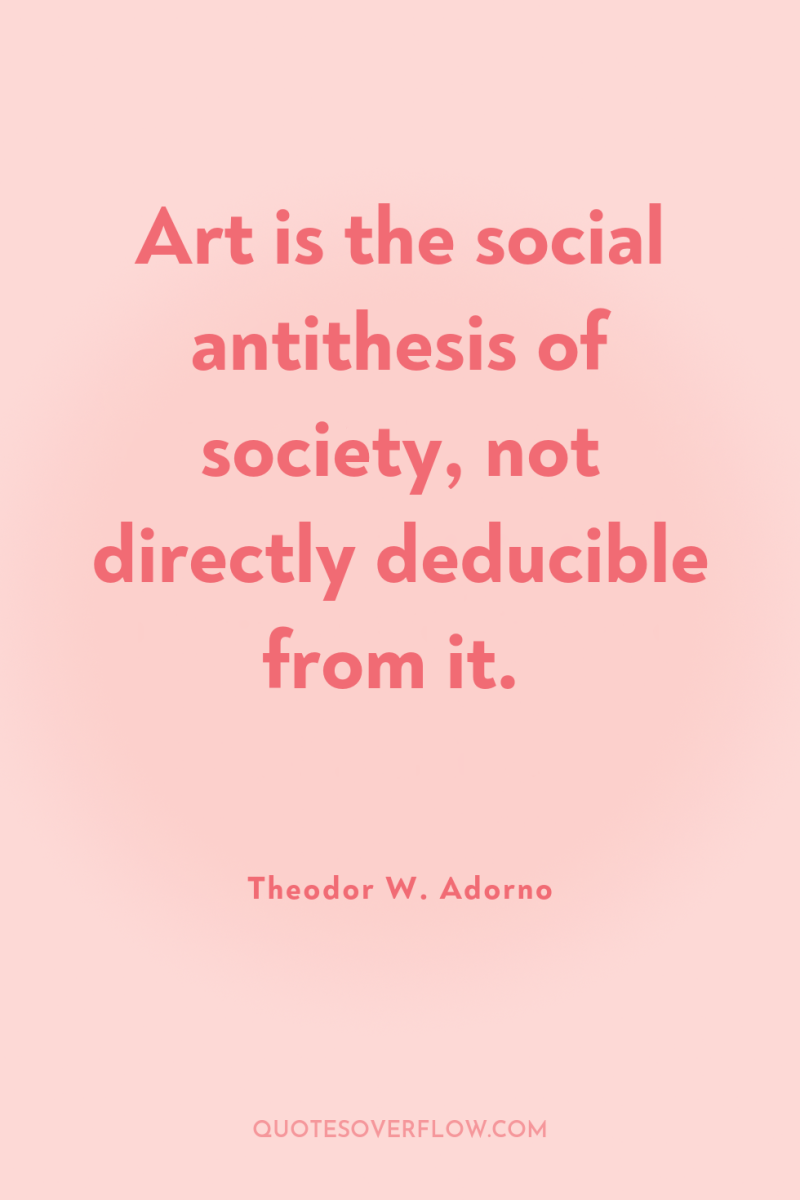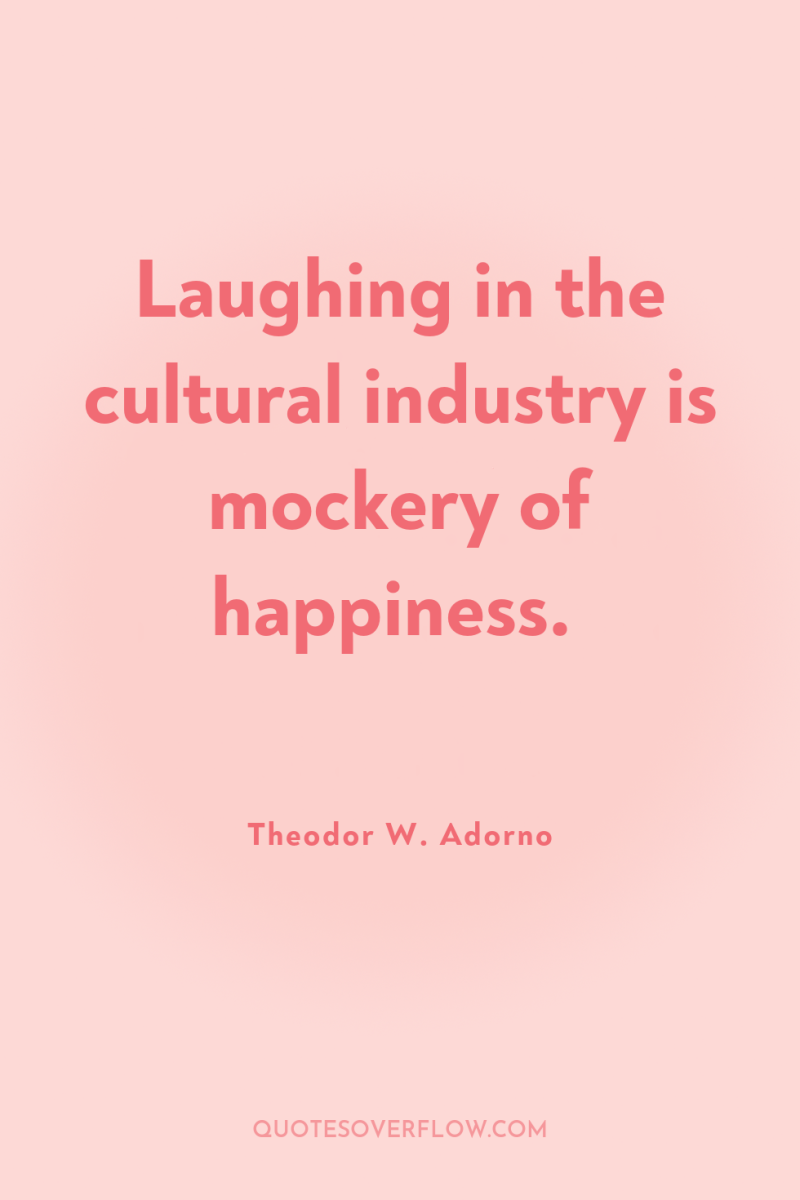
1
What can oppose the decline of the west is not a resurrected culture but the utopia that is silently contained in the image of its decline.Theodor W. Adorno
2
In so far as the culture industry arouses a feeling of well-being that the world is precisely in that order suggested by the culture industry, the substitute gratification which it prepares for human beings cheats them out of the same happiness which it deceitfully projects.Theodor W. Adorno

3
The darkening of the world makes the irrationality of art rational: radically darkened art.Theodor W. Adorno

4
Art is the social antithesis of society, not directly deducible from it.Theodor W. Adorno
5
Philosophy, which once seemed outmoded, remains alive because the moment of its realization was missed. The summary judgement that it had merely interpreted the world is itself crippled by resignation before reality, and becomes a defeatism of reason after the transformation of the world failed. It guarantees no place from which theory as such could be concretely convicted of the anachronism, which then as now it is suspected of. Perhaps the interpretation which promised the transition did not suffice. The moment on which the critique of theory depended is not to be prolonged theoretically. Praxis, delayed for the foreseeable future, is no longer the court of appeals against self-satisfied speculation, but for the most part the pretext under which executives strangulate that critical thought as idle which a transforming praxis most needs. After philosophy broke with the promise that it would be one with reality or at least struck just before the hour of its production, it has been compelled to ruthlessly criticize itself. .Theodor W. Adorno
6
Even at that time the hope of leaving behind messages in bottles on the flood of barbarism bursting on Europe was an amiable illusion: the desperate letters stuck in the mud of the spirit of rejuvenesence and were worked up by a band of Noble Human-Beings and other riff-raff into highly artistic but inexpensive wall-adornments. Only since then has progress in communications really got into its stride. Who, in the end, is to take it amiss if even the freest of free spirits no longer write for an imaginary posterity, more trusting, if possible, than even their contemporaries, but only for the dead God? .Theodor W. Adorno

7
Laughing in the cultural industry is mockery of happiness.Theodor W. Adorno
8
In the end the soul is itself the longing of the soulless for salvation.Theodor W. Adorno
9
The only philosophy that can be practiced responsibly in the face of despair is the attempt to contemplate all things as they would present themselves from the standpoint of redemption. Knowledge has no light but that shed on the world by redemption: all else is reconstruction, mere technique. Perspectives must be fashioned that displace and estrange the world, that reveal its fissures and crevices, as indigent and distorted as it will one day appear in the Messianic light.Theodor W. Adorno
10
They [the critics] deal with Schoenberg’s early works and all their wealth by classifying them, with the music-historical cliché, as late romantic post- Wagnerian. One might just as well dispose of Beethoven as a late-classicist post- Haydnerian.Theodor W. Adorno
11
The only true thoughts are those which do not grasp their own meaningTheodor W. Adorno
12
Triviality is evil - triviality, that is, in the form of consciousness and mind that adapts itself to the world as it is, that obeys the principle of inertia. And this principle of inertia truly is what is radically evil.Theodor W. Adorno
13
Very evil people cannot really be imagined dying.Theodor W. Adorno
14
The splinter in your eye is the best magnifying-glass available.Theodor W. Adorno
15
On the way from mythology to logistics thought has lost the element of self-reflection and today machinery disables men even as it nurtures them.Theodor W. Adorno
16
Among today's adept practitioners, the lie has long since lost its honest function of misrepresenting reality. Nobody believes anybody, everyone is in the know. Lies are told only to convey to someone that one has no need either of him or his good opinion. The lie, once a liberal means of communication, has today become one of the techniques of insolence enabling each individual to spread around him the glacial atmosphere in whose shelter he can thrive. .Theodor W. Adorno
17
Today the order of life allows no room for the ego to draw spiritual or intellectual conclusions. The thought which leads to knowledge is neutralized and used as a mere qualification on specific labor markets and to heighten to commodity value of the personality.Theodor W. Adorno
18
Ruthlessly, in despite of itself, the Enlightenment has extinguished any trace of its own self-consciousness. The only kind of thinking that is sufficiently hard to shatter myths is ultimately self-destructive.Theodor W. Adorno
19
It would be advisable to think of progress in the crudest, most basic terms: that no one should go hungry anymore, that there should be no more torture, no more Auschwitz. Only then will the idea of progress be free from lies.Theodor W. Adorno
20
Auschwitz begins wherever someone looks at a slaughterhouse and thinks: they’re only animals.Theodor W. Adorno
21
A film which followed the code of the Hays Office to the strictest letter might succeed in being a great work of art, but not in a world in which a Hays Office exists.Theodor W. Adorno